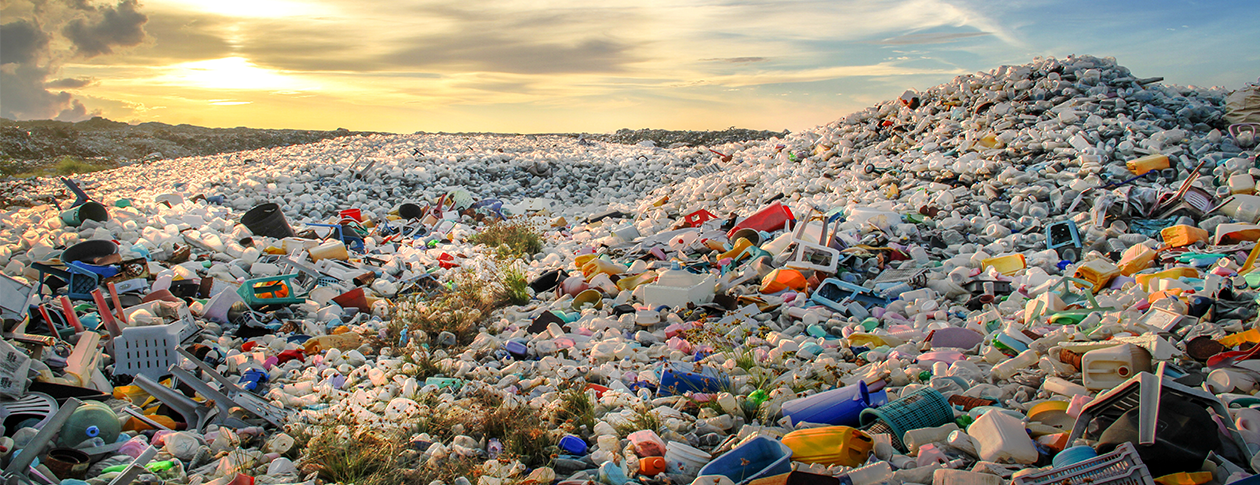
The Plastic Age
Our Environment

748 views
0 likes
You will need to sign in before you can comment or like.
Since the inception, the Human civilization has crossed from Stone Age to today's Steel age. But
now, most probably the steel has even been outdated.
It won't be any exaggeration if we call the
present as the ‘Age of Plastic’.
Plastic is a common terminology covering innumerous varieties of
material but they have a common feature of same origin i.e. petroleum or derived naphtha and of
course of the polymeric nature. Plastic has the versatile capability of exhibiting any kind of
property desired out of it. It may be soft or hard, tough or elastic, foam or spongy, thread or sheet,
hollow or solid, tube or bar and products can be tailored of any shape and utility. This
magical quality has promoted plastic to permeate every facet of human life.
A few elaborations
may tell us not only how aggressively plastic is pushing off traditional materials like wood, stone,
metal or natural fiber but also how it is helping in improving our living and lifestyle. We may take
the instances in healthcare sector where ailing heart valve or hip joints are replaced by plastic
ones. Blood bag, syringes, surgical instruments and gloves, artificial limbs, catheter, artificial skin
and all sterile products used in medical fields find no alternative than plastic. With the advent of
plastic, the whole definition of packaging has been changed. Packaging design is now as per the
delivery condition required for the product; be it rigid for protection, flexible for convenience,
opaque or transparent. Wide variety of shapes and sizes with amazing look excellent printability
for necessary product information.
 Earlier, huge amount of crops were reported to be wasted for
want of adequate packaging and storage. Plastic packaging is now an answer to it. About one billion
of world population is devoid of adequate potable
water and 35 % of death in the developing countries is
due to water borne diseases. Plastic pipes filters,
containers are now contributing in a large way by
providing these basic amenities.
Earlier, huge amount of crops were reported to be wasted for
want of adequate packaging and storage. Plastic packaging is now an answer to it. About one billion
of world population is devoid of adequate potable
water and 35 % of death in the developing countries is
due to water borne diseases. Plastic pipes filters,
containers are now contributing in a large way by
providing these basic amenities.
Plastic has now
made itself indispensable in automobile
sectors and land, water and forest conservation,
energy saving by light weight and even in space
technology. This is an endless story. The essence
lies in its contribution in economic growth of the
country.
Probably the great threat to human civilization lies in the fact of excellence that plastic bears on
itself.
Plastic by nature is non- bio-degradable. The plastic waste or disposed plastic after utility
is terminated can retain its material characteristics for hundreds of years. The huge accumulation
of plastic wastes over the years, especially in an unorganized fashion is now posing challenge to our
environment.
The indiscriminate littering of plastic waste is making the land unavailable for
meaningful uses. Waste disposed to water is putting the aquatic life in danger, and then what is
the way out? Recycling of waste may be one of them. But all plastics are not recyclable. Even
segregation of recyclable parts of the waste material is not mostly viable. Making plastic
biodegradable by addition of additive is one of the solutions. But this phenomenon is not common
for all resins of the polymers and needs. Wide research on this is ongoing to attract the optimum
efficiency. Incineration of plastics generates toxic gases.
Now time has come when a national
policy is required for controlling the plastic waste.
Integrated waste management, recycling of
plastic by adopting latest technology may alleviate the situation. Converting the waste tor fuel for
energy, depolymerization, using as highway fillers and more innovations are coming up to save the
situation.
Governments of every country are putting up regulations in disposal of plastics. A plastic
carry packet below 20 microns is banned.
An awareness program by the municipals and panchayats
and use of plastic litter bins to collect and segregation at source is the need of the hour.
After all,
a cohesive effort at all levels is required for proper disposal of plastic waste to make plastic an
integral part of sustainable development.
Comments